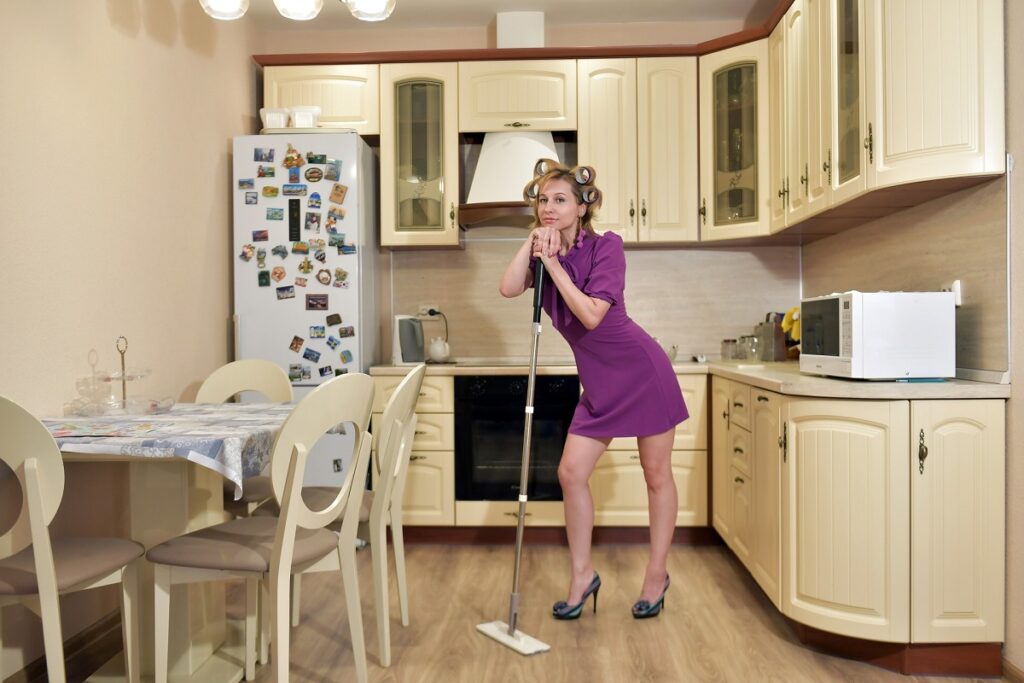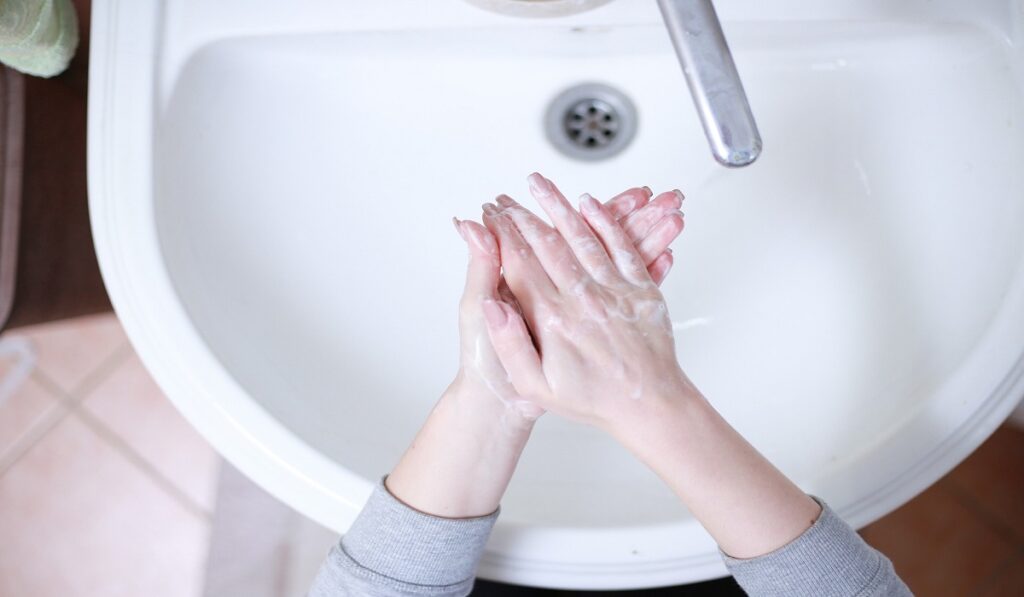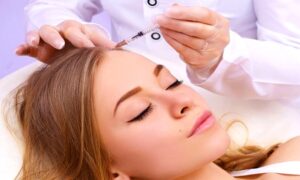Hygiene plays a vital role in human life, as it constitutes the first line of defense against germs and infectious diseases. One of the most important aspects of self-care is personal hygiene and a healthy lifestyle.

The Importance of Personal Hygiene
Maintaining a clean body has positive effects on a person’s social life and physical and mental health.
Good personal hygiene is one of the best ways to protect yourself from disease and prevent you from spreading disease to others.
What is Hygiene?
Hygiene is a series of practices that are undertaken to maintain health. Hygiene is very important to have a healthy and disease-free life.
Hygiene is a set of healthy practices that work to get rid of dirt and all matters that may cause diseases and epidemics to humans and the environment.
Why is Cleanliness Important in Our Daily Life?
Personal hygiene and cleanliness are accompanied by enormous social benefits. Cleanliness keeps our physical and mental health clean, which makes us feel good. Cleanliness guarantees a person a good smell and good appearance.
Paying attention to the cleanliness of the environment, in general, would greatly reduce the risk of transmission of microorganisms and various diseases from one person to another through infection.
The concept of hygiene here refers to that activity that aims directly at getting rid of all harmful or unfamiliar materials such as blood, soil, dust, secretions, and living organisms, using water, detergents, and others.
Air pollution is one of the causes behind the death of at least four million people around the world due to exposure to various respiratory diseases, and approximately five trillion dollars are spent on health treatment for people who have contracted the various diseases resulting from this type of pollution.
The matter that requires the use of alternative and clean methods of cooking and heating will reduce the severity of the problem and will ensure the creation of healthier and more stable human societies and ensure the economic growth of countries.
It is mainly responsible for achieving the so-called sustainable development that includes both social and economic development.
Taking care of body hygiene would greatly prevent the possibility of exposure to various diseases that negatively affect the health of the body.
It is recommended to wash hands well before getting out of the bathroom, before eating meals, and before wearing or putting on contact lenses, in order to avoid the transmission of germs to the body.
Many diseases are transmitted through dirty hands, including colds, and infections that include gastritis, intestines, and others, which makes hand washing an urgent necessity.
Use soap, take care to clean the nails well, and use appropriate tools for drying hair and body, such as hot air dryers or paper towels.
The prevention of various diseases through hygiene would reduce the financial costs of treatment or health care.
An example of this is taking care of dental hygiene and health greatly reduces the number of times a person needs to visit a doctor.
Washing hands well with soap and water greatly reduces the incidence of diarrhoea, which in turn is classified as the second leading cause of child death in the world, especially those under the age of five.
Regular hand washing reduces this problem by at least 50% and plays a prominent role in reducing the possibility of infection with many dangerous diseases such as cholera, dysentery, scabies, dermatitis, pneumonia, and others.

Types of Hygiene
Hygiene can be classified into several sections, including:
Personal Hygiene
Personal hygiene is the cleanliness of all parts of the body and its organs. It is the act of maintaining cleanliness and grooming of the external body.
Maintaining personal hygiene has many benefits on the social, health, personal, and psychological levels, or as a way of life.
Parents must train their children from an early age on healthy habits, and observe personal hygiene daily, in order to ensure a clean and decent appearance and prevent unpleasant odors.
Taking care of personal hygiene greatly affects a person’s self-esteem and affects how others perceive him.
The body parts exposed to pollution can be taken care of continuously by following these steps and tips:
- Pay attention to washing hands with soap and water frequently before eating, after eating, after relieving the toilet, and after handling anything contaminated, especially after carrying animals.
- Take care to cut and clean the nails daily and avoid the accumulation of dirt and germs in them because this will cause diseases.
- Wash the face daily with soap and water at least twice and get rid of cosmetics before bedtime.
- Pay attention to the cleanliness of the eyes and wash them every morning and do not use other people’s personal items.
- Care to wash the feet with soap and water and dry them well, and not to wear socks more than once.
- Pay attention to clean hair, wash it with soap and water, and get rid of excess hair in the body.
- Pay attention to general body hygiene, bathe with soap and water, and change underwear daily.
- Take care of your mental health, because cleaning the mind by following sound patterns of thinking, greatly helps a person to become cleaner and more organized.
Environmental Hygiene
The environment is everything that surrounds living organisms, and it is the natural medium for human life, and it includes the components of water, soil, air, climate, and living organisms.
The ecosystem consists of both living and non-living components. The cleanliness of the environment is one of the most important things in our life.
A clean environment plays an important role in the continued existence of all kinds of living organisms on Earth, as the process of cleaning the environment helps reduce pollution rates and protect scarce ecosystems.
It also contributes to preserving natural resources such as water, air, and soil, in addition to preventing the extinction of endangered species.
A clean environment also positively affects the protection of biological diversity and the ecosystems upon which human life and other living organisms on Earth depend.
Every person on this earth must preserve the environment in which he lives and not expose it to pollutants that will harm everyone without exception.
Trees must be preserved, and waste should not be thrown on the ground, and the environment should not be exposed to polluting smoke.
Here are some ways to reduce environmental pollution and keep our environment clean and safe:
- Adhere to the principles and rules of sound health.
- Keep away from the noise and mitigate its impact.
- Refuse single-use items (especially plastic).
- Buy locally, eat more plants, and compost your food waste.
- Collaborate with all members of society to protect the environment.
- Dispose of all kinds of garbage in a correct and proper way.
- Plant trees and landscape with native plants, in order to increase the amount of oxygen gas.
- Green your transportation and travel habits.
- Spread awareness and education among the population about environmental hygiene.
- Make your voice heard: sign petitions, contact your leaders.
- Conserve water and use alternatives to pollutants.
Food and Water Hygiene
Food hygiene refers to the processes that directly involve food – including storage, preparation, and cooking. Food hygiene is an important aspect of food safety.
You must pay attention to the cleanliness of the food that we eat. It is not permissible to eat unclean foods because this will lead to many diseases and may lead to poisoning and death.
A person must wash vegetables and fruits before eating them, clean the kitchen and utensils frequently, and dispose of garbage constantly.
Safe drinking water, sanitation, and hygiene are essential to human health and well-being.
Access to safe drinking water and quality sanitation is vital to a family’s well-being. This leads to the control of intestinal diseases and promotes the health of the child.
Pay attention to clean water and make sure that it does not contain chemical pollutants, germs, and worms.





